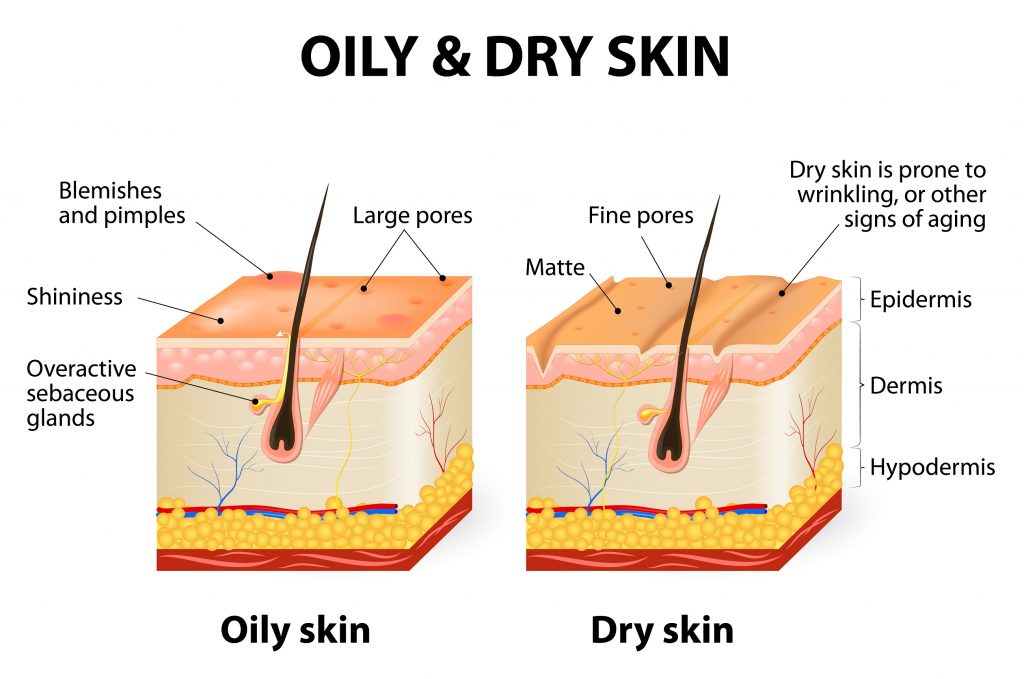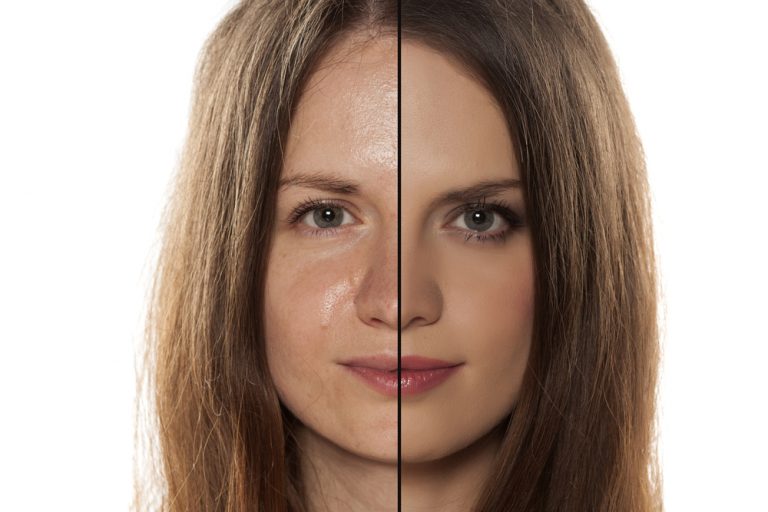There is a close relationship between the condition of the skin, hair and nails and the diet. Nutrient deficiencies are first and foremost revealed by the deterioration of these structures.
Nutrients that significantly affect the skin include
- vitamins C, E, A, beta-carotene, B vitamins;
- vitamins of group B
- elements zinc, selenium, iodine, iron, copper
- fatty acids from the omega 3 group
- polyphenols
The problem of oily skin affects many women. Oily skin has a natural tendency to develop acne. Its characteristic features are the resulting excessive sebum production, changes in the type of blackheads and eczemas or enlarged hair follicle. Using the correct diet helps us in alleviating unpleasant skin problems and improves the condition of the skin. The correct supply of ingredients that have a beneficial effect on the skin is important, as well as avoiding factors that may worsen its condition.

Diet for oily skin - what to avoid?
There is a list of products whose presence in the diet will adversely affect the condition of acne-prone skin. Their exclusion or significant reduction from diet plan allows to reduce sebum production and improve overall skin condition. In this list, we will find:
- salt, sugar, sweets (especially chocolate), sweet carbonated drinks
- excessive amounts of alcohol
- fast foods
- products rich in trans-fatty acids, i.e. hard margarine, chips, low-quality peanut butter, confectionery products with cream
- excessive amounts of coffee and other caffeinated drinks (e.g. energy or cola drinks)
One of the key dietary recommendations for oily skin problems is to avoid excessive amounts of sugar and products that are rich in it. This also applies to its sweet derivatives, such as glucose and fructose syrup or maltodextrins.
Acne skin should also mobilize to avoid food rich in food additives. Preservatives, dyes, flavours, especially synthetic ones, can adversely affect its condition. Dairy products and milk should also be carefully included in the diet. Products from this group may intensify skin changes for some people. However, this is a very individual issue. It is also advisable to avoid spicy spices.
What to eat in a diet for oily skin?
Among the products that should form the basis of a diet for a nice complexion, we will find
- whole-grain products such as groats, brown rice, wholemeal pasta, wholemeal bread are a source of not only complex carbohydrates that add energy but also B vitamins and minerals
- fatty sea fish – they provide omega 3 acids, iodine and other elements important for the skin
- vegetables - they should be an addition to every meal
- fruit - up to two portions per day
- nuts and seeds - consumed in moderation will be a valuable source of minerals and healthy unsaturated fatty acids
- legumes - are a source of zinc and other minerals, unsaturated fatty acids and good quality protein
- lean red meat (beef, veal) - will be a source of haem iron
- parsley, beet, broccoli, avocado, kale, in which we find iron in a non-haem form
Summary
Applying a diet for oily skin will bring benefits not only in terms of improving skin condition. It will also positively affect the figure and reduce the risk of many civilization diseases such as atherosclerosis or diabetes.






